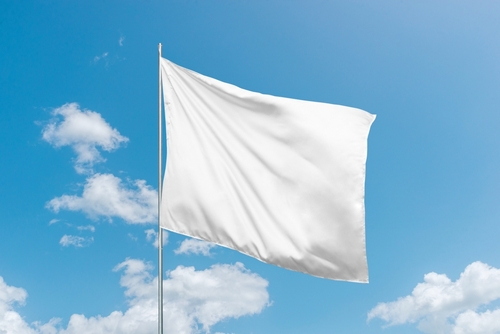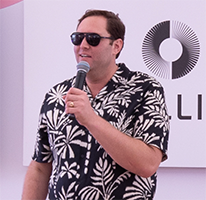Michael Mitaro knows how to locate the soul of a beer. As director of marketing and sales at Labatt USA’s specialty import division in the early ’90s, he dug out the “inherent qualities” in Jamaican import Red Stripe. “It was a downscale beer in a stubby bottle staggering along with little marketing support,” Mitaro recalls.
Mitaro repositioned Red Stripe as an upscale quaff with roots in Jamaican culture. On-premise promotions themed on reggae, art, and music tripled sales in three years.
Today Mitaro is marketing a beer with a built-in brand heritage, as familiar to many New Yorkers as yellow taxis and knishes. The native New Yorker is bringing back Rheingold Extra Dry. The lager reigned as the No. 1 seller for 30 years in the metro area before disappearing from shelves in 1976.
Bringing a popular brand back from the dead creates a unique marketing challenge. The return of Rheingold’s white, red, and black cans and its once pervasive jingle will bring smiles to people over 40. But the primary audience – 21- to 35-year-olds – will see it as a new brand.
Mitaro left Labatt last year to form Beverage Alliance to market beers. His first buy was Rheingold, licensed from The Stroh Brewery where he worked in marketing for years. Mitaro says he sensed that micro brews were running their course.
Mitaro plans to strike a balance between the nostalgia and making the beer contemporary for younger folks. “Contrived brands rarely succeed. But brands that have a legitimate reason for being tend to do well. Our challenge is to bring out the image and qualities that are inherent in Rheingold,” Mitaro says.
“Rheingold is a good drinkable lager beer with a simple proposition. It’s a basic brand,” he adds.
The brand’s equity took physical shape March 31 at a city eatery where Mitaro announced the brew’s return. Three former Miss Rheingolds were there, stirring memories of the contest that absorbed bar patrons and shoppers for 25 years. Two former New York Mets heroes shared the podium, harkening back to the beer’s long-running sponsorship of the 1963 expansion team. Unknown to most in the crowd, but important for restoring the beer’s taste, was Dr. Joseph Owades, the original brewmaster. Owades is returning to produce the exact dry, flavorful, krausened, high-original-gravity beer again.
Also on hand was Walter “Terry” Liebman. Nephew to the founding Liebmanns and a former assistant vp of sales with the original company, Liebman joined Mitaro as managing partner.
The Mets are the cornerstone of Rheingold’s marketing. It’s the exclusive domestic beer sponsor of Mets radio broadcasts on WFAN for the 1998 season. The beer returned to Shea Stadium concessions on opening day when its famous jingle played again in the stadium.
Last month fans at one game got complimentary beach towels with the Rheingold and Mets logos. After presstime, four fans had the chance to toe the ballfield’s rubber, throw three strikes, and win one million dollars in The Rheingold Strike It Rich sweeps. One fan was chosen through entry forms in bars and stores. Andover Marketing, Fairfield, CT, handles POS.
Mitaro sees Rheingold as a niche beer against market leaders like Budweiser and Heineken. It will sell for about 50 cents more than a six-pack of Budweiser. “Our positioning is akin to a super premium beer. It’s a category that has almost been abandoned,” he says.
After three months, Rheingold had almost 20 percent account penetration. Mitaro’s goal is 80 percent store presence by April. And, in five years, 1 percent of the New York, New Jersey, and Connecticut markets, or three million cases and $40 million annual sales.
Mitaro seems confident he’s selling a brand that can recapture past glory, even after a 23-year absense. “Today’s consumer appreciates variety. Both younger and older adults will come back once they try us. After all, Rheingold is classic beer.”
 Network
Network

